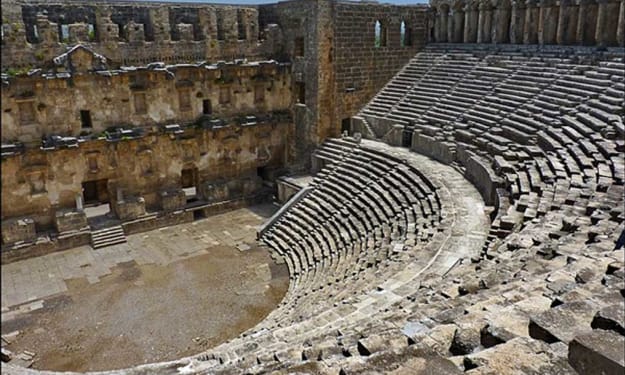The Elusive Nature of Wakefulness
Questioning Reality

You’re a butterfly, fluttering around, pursuing the whims of a butterfly's life. Then you wake up. But how can you be certain that you're not still dreaming? The answer may appear obvious, but explaining how you definitively know you're awake is a complex task that has puzzled philosophers throughout history. In the realm of dreaming, the ancient Chinese philosopher Zhuangzi introduced a perplexing possibility: if we can dream of being entirely different creatures, who's to say that we're not currently a different creature dreaming of being human?
Dreams present us with bizarre scenarios where we can fly, conjure feasts out of thin air, or find ourselves chased by witches through the familiar halls of our elementary school, which suddenly transforms into Paris. Yet, within the dream itself, these strange occurrences do not appear unusual. So, how can you be sure that you're not currently trapped within a dream that will seem strange once you awaken?
Although it is possible to perceive the strangeness of a dream while still dreaming, this lucid awareness only confirms that you're not experiencing a lucid dream—it doesn't prove that you're awake. What we need is a definitive test, something that either never happens or only occurs when we are truly awake, distinguishing it from the realm of dreams.
Wake up. No, that's not it—you can wake up within a dream. Pinch yourself. If it hurts, does that mean you're truly awake? Try to read or write something. Run around the room. Does your movement feel normal or suspiciously slow? Suspiciously fast? Uncertain? Try to recall the last time you ran. But, in fact, a more compelling test was proposed by the 17th-century French philosopher René Descartes. He noted that in our memories, dreams are disjointed from the chain of events in our waking lives. This observation appears solid—after all, you couldn't have possibly swum with dolphins in a nameless pink sea between Christmas and New Year's Eve when you never left Kansas, as your receipts can attest.
However, Thomas Hobbes, an English philosopher of the same era, posed an intriguing question: what if Descartes was conducting his test within a dream? Perhaps, instead, we should consult an expert. A neuroscientist could examine the activity in various regions of your brain to determine whether you're awake or asleep. Yet, this line of inquiry circles back to the notion that any test you employ to prove your wakefulness could take place within a dream. So far, no one has managed to provide a compelling response to this conundrum.
Let's consider the undeniable fact that our waking experiences are filled with significantly more detail than dreams. Day after day, year after year, we go to sleep and wake up, encountering countless people, places, things, and experiences. Even our memories, capturing a mere fraction of this vast tapestry, hold an incomprehensible amount of intricate detail. We can recall lines from favorite books, vividly remember the musty smell of their pages, and even reminisce about the taste of lemonade enjoyed while immersed in their worlds. We can recall dreams inspired by these stories and share these recollections with others. Is it not absurd to suggest that a dream could ever replicate this richness?
Nevertheless, as the Persian philosopher al-Ghazali astutely observed, just as we believe we are awake upon waking from a dream, it is possible that we might awaken from our current state into a heightened state of wakefulness. This notion suggests that our perception of being awake might, in fact, be a form of dream-like state. The fundamental question philosophers seek to address is what justifies our belief that we are truly awake. We all desire to believe things based on sound reasons, rather than relying solely on what appears obvious to us. Sometimes, the greatest challenge lies in explaining why we should trust in something that seems unquestionably evident to all.
You’re a butterfly, fluttering around, pursuing the whims of a butterfly's life. Then you wake up. But how do you know you’re not dreaming now? The answer might seem obvious, but it’s actually very difficult to explain how, definitively, you know you’re awake. So difficult, in fact, that it has puzzled philosophers since ancient times. In the butterfly scenario, the ancient Chinese philosopher Zhuangzi surfaced a mystifying possibility: if we can dream of being an entirely different creature, who's to say we're not actually a different creature dreaming of being human? Bizarre things happen in dreams: you fly, or conjure an all-you-can-eat dessert buffet out of thin air, or get chased by witches through the halls of your elementary school, which suddenly looks a lot like Paris. But the strange things that happen in dreams don’t seem strange at the time. So how do you know you’re not in a dream right now that will seem very strange after you wake up? Well, it is possible to notice the strangeness of a dream while you’re dreaming. Lucid dreamers know they’re dreaming. By definition, if you were having a lucid dream, you would know it. But all that proves is that you’re not having a lucid dream—it doesn’t prove you’re awake. There has to be a surefire test—something that never— or only— happens when you’re awake, something that never— or only— happens in a dream. Wake up. No, that isn’t it— you can wake up in a dream. Pinch yourself. If it hurts, aren’t you really awake? Try to read or write something. Run around the room. Does your pace seem normal or suspiciously slow? Suspiciously fast? Can’t tell? Try to remember the last time you ran. Actually, that brings us to an even better test from the 17th century French philosopher René Descartes. He pointed out that in our memories, dreams are disconnected— the events of a dream don’t fit in to the chain of events in our waking lives. This seems rock solid, doesn't it? You couldn’t possibly have swum with dolphins in a nameless pink sea between Christmas and New Year’s Eve because you didn’t leave Kansas and you have the receipts to prove it. Well, one of Descartes’ contemporaries, the English philosopher Thomas Hobbes, had something to say about that: what if Descartes was performing his test in a dream? What if we ask an expert? A neuroscientist can measure the activity in different parts of your brain and tell you whether you’re awake or sleeping. But that just brings us back to the idea that any test you might use to prove you’re awake could take place in a dream. So far, no one has found a convincing response to this. But let’s be real: there’s a whole lot more detail in our waking experience than in dreams. We go to sleep and wake up again day after day for many years, and each new day is full of countless people, places, things, experiences. Even our memories, which capture just a fraction of this experience, contain an almost incomprehensibly vast amount of detail: we can recall a line from a favorite book decades later, remember the musty smell of its pages and the taste of the lemonade we drank while reading it, remember a dream we had about it and tell someone all this. Isn't it ridiculous to suggest a dream could ever simulate this richnessTitle: Challenging Reality: The Elusive Nature of Wakefulness
You’re a butterfly, fluttering around, following the whims of a butterfly's life. Then you wake up. But how can you be certain that you're not still trapped in a dream? The answer may seem obvious, but explaining how we definitively know we're awake has confounded philosophers throughout the ages. In the butterfly scenario, the ancient Chinese philosopher Zhuangzi proposed a mind-boggling possibility: if we can dream of being an entirely different creature, who's to say that we're not, in fact, a different creature dreaming of being human?
Dreams present us with peculiar occurrences—flying through the air, conjuring feasts out of thin air, or being chased by witches through familiar yet transformed settings. Oddly enough, these strange events don't strike us as unusual while we're dreaming. So, how can we discern whether we're currently experiencing a dream that will seem absurd once we awaken?
Although it is possible to recognize the peculiarity of a dream while still within it, this lucid awareness merely confirms that we're not experiencing a lucid dream—it doesn't prove that we're awake. What we need is a foolproof test, something that either never happens or exclusively occurs when we are genuinely awake, effectively separating the realm of dreams from reality.
Waking up? No, that's not a reliable indicator—you can wake up within a dream. Pinching yourself? If it hurts, does that guarantee wakefulness? Attempting to read or write something? Running around the room? Does your movement feel normal or suspiciously sluggish? Suspiciously swift? Uncertain? Try to recollect the last time you ran. Yet, a more compelling test was proposed by the 17th-century French philosopher René Descartes. He observed that the events in dreams are disjointed from the chain of events in our waking lives. This observation appears rock solid—after all, you couldn't have possibly swum with dolphins in a nameless pink sea between Christmas and New Year's Eve if you never left Kansas, as evidenced by your receipts.
However, Thomas Hobbes, an English philosopher from the same era, introduced a thought-provoking idea: what if Descartes conducted his test within a dream? Perhaps, instead, we should seek the opinion of an expert. A neuroscientist could examine the brain activity across different regions and determine whether we're awake or asleep. Yet, this line of inquiry circles back to the notion that any test we employ to prove wakefulness could take place within a dream. To date, no one has convincingly resolved this enigma.
Let's consider the undeniable fact that our waking experiences are far richer in detail than dreams. Day after day, year after year, we fall asleep and awaken, encountering countless individuals, places, objects, and experiences. Even our memories, which only capture fragments of this vast tapestry, hold an unfathomable amount of intricate detail. We can recall lines from favorite books, vividly remember the musty scent of their pages, and even describe the taste of the lemonade we sipped while immersed in their narratives. We can recount dreams inspired by these stories and share these recollections with others. Is it not preposterous to suggest that a dream could ever replicate this profound richness?
Nonetheless, as the Persian philosopher al-Ghazali astutely pointed out, just as we believe we are truly awake upon waking from a dream, it is possible that we might awaken from our current state into an even greater level of wakefulness. This notion implies that our perceived wakefulness might, in reality, be akin to a dream-like state. Ultimately, philosophers strive to determine what justifies our belief in our wakefulness. We all seek to base our beliefs on sound reasons rather than relying solely on what appears self-evident. Sometimes, the greatest challenge lies in demonstrating why we should trust something that seems unquestionably evident to us all.
Henrik Leandro
About the Creator
Henrik Leandro Laukholm Solli
Free thinker, traveler and humanist <3






Comments
There are no comments for this story
Be the first to respond and start the conversation.